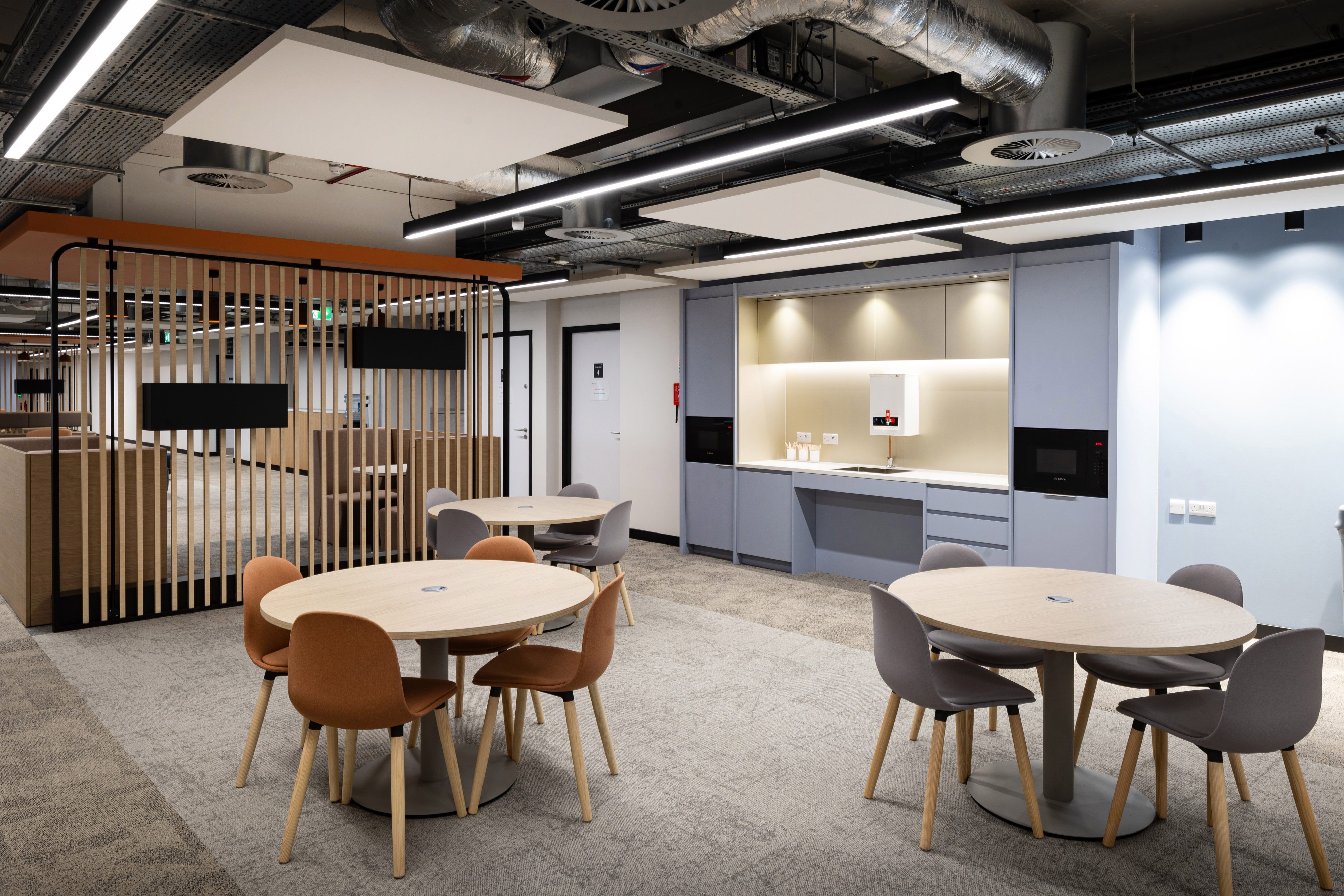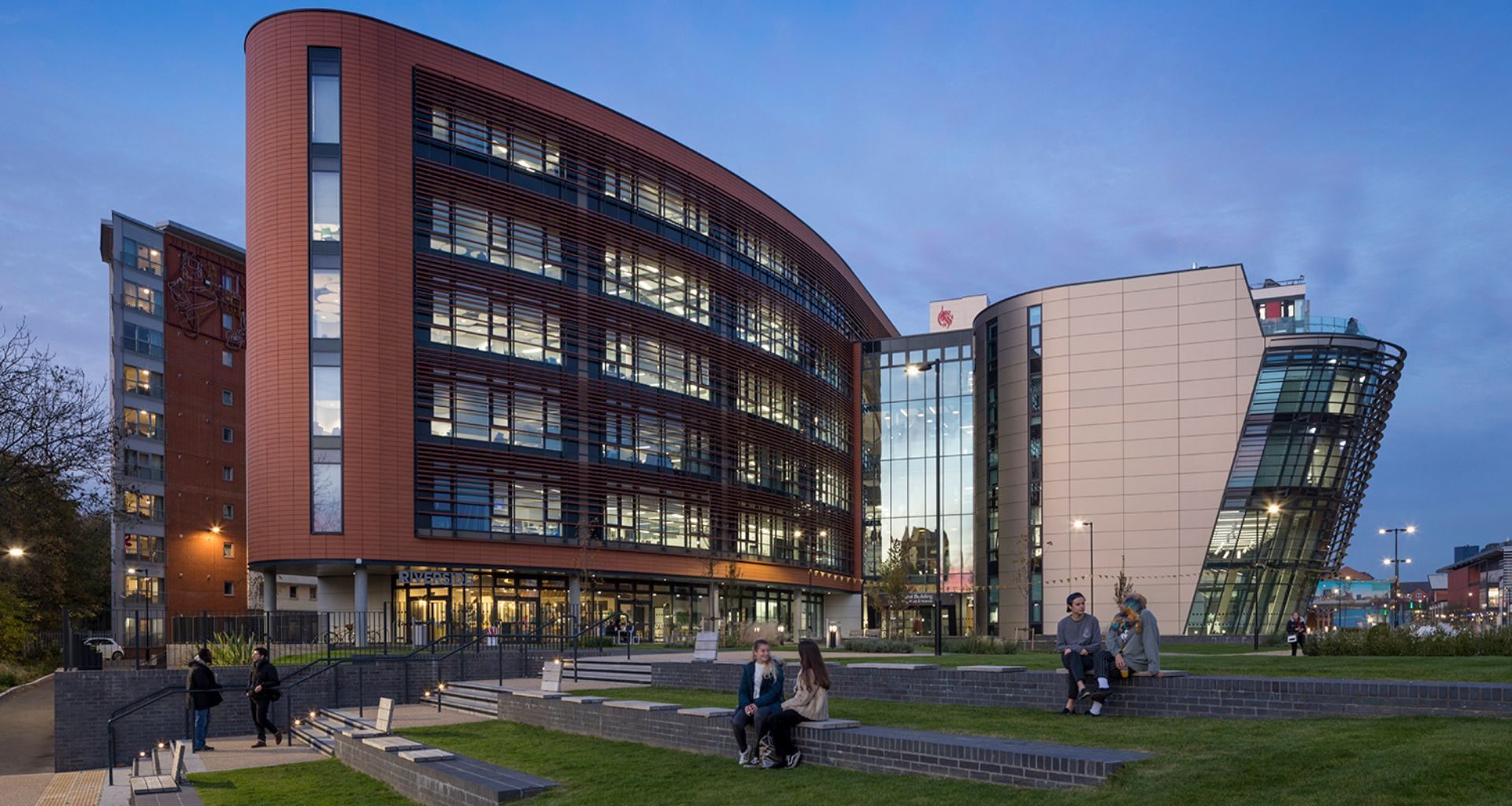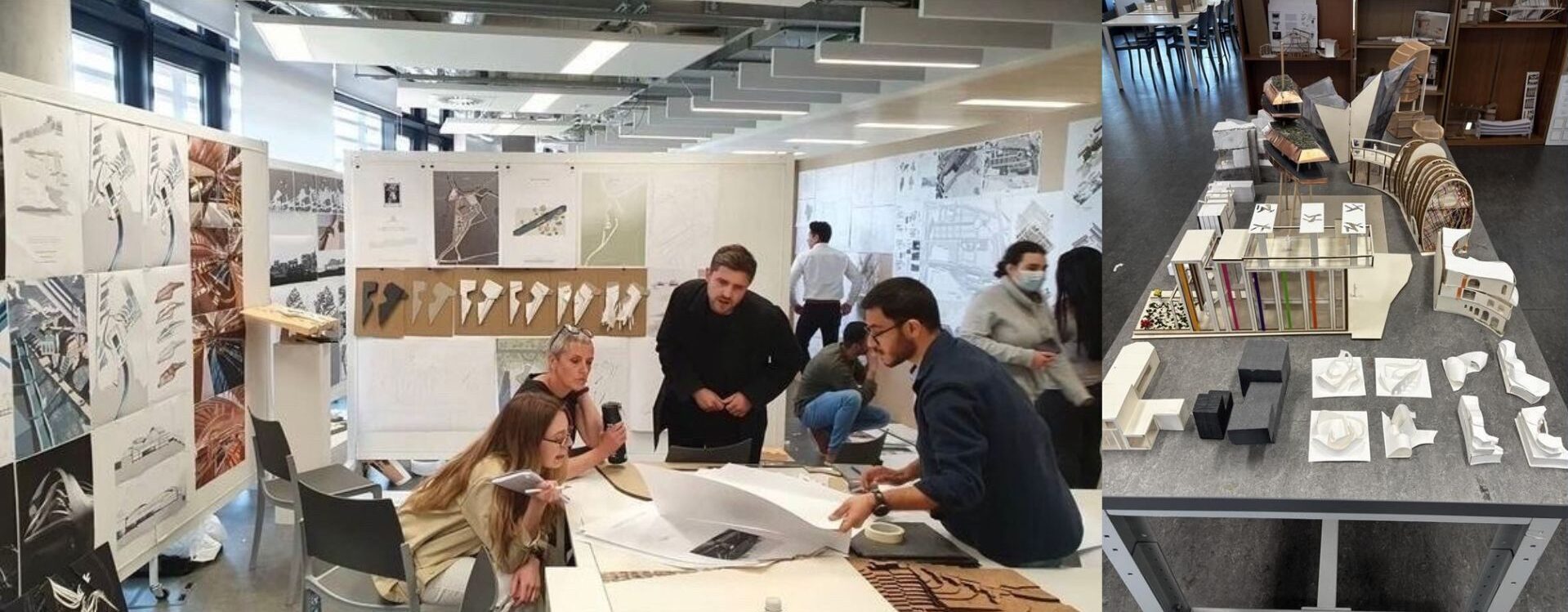
12 Nov 2025
At CPMG, we believe in supporting every architect to grow, share knowledge, and make an impact - both in practice and beyond. Architect Hannah Bird, based in our London studio, embodies that ethos.
Over the past year Hannah has balanced project work, mentoring, and university teaching, all while helping to inspire the next generation of designers.
In this Q&A, Hannah shares highlights from her first year at CPMG - including her work on The Amp Fit-Out at De Montfort University, her involvement with the Women in Architecture Mentoring Programme, and how she’s helping shape our mentoring culture.

You’ve been with CPMG for just over a year now - how’s it been? Any highlights so far?
It’s been a great year! The highlights have definitely included completing The Amp Fit-Out at De Montfort University, as well as the fantastic team culture and social events across all our offices. Everyone has been so welcoming.
Speaking of the team, how would you describe the culture at CPMG? And what’s your favourite thing about the London studio?
The culture at CPMG is welcoming and built around a shared goal of delivering great work. Our London studio is in one of the city’s key design districts, surrounded by other creative practices, showrooms, and amazing food spots - perfect for networking and inspiration. The team here is approachable, sociable, and detail-oriented.
Which projects have stood out to you during your time here?
It’s fantastic working for a practice that has delivered buildings like the Vijay Patel Building at De Montfort University - a project that really impacted me during my own education and later as a university tutor. Experiencing a building designed by the practice you work for is really special. It deepens your understanding of what makes great architecture and helps you see opportunities for improvement and elements we should celebrate.

You’ve also been involved in the Women in Architecture UK Mentoring Programme. What drew you to that?
I have been interested in mentoring from early on in my higher education, having been a visiting critic for younger years in architecture school and then becoming a technical skills demonstrator during my Masters, I am passionate about working with designers from all backgrounds and uplifting/empowering as many future architects as possible. I joined the WIA Mentoring Programme two years ago after it was recommended by a colleague who had a huge impact on my professional development. Having just completed my Part 3 at the time, I felt ready to offer meaningful advice and support to others approaching that same stage.
You’ve experienced the programme both as a mentee and a mentor - how did that perspective shape your experience?
Being on both sides of the programme has been incredibly valuable. As a mentee, I had the space to share ideas, ask questions, and gain advice from someone I deeply respect - and that, in turn, made me a better mentor. Mentoring has been equally rewarding. It’s amazing to see the impact of creating a safe, unbiased space for open discussion - it can really empower mentees to make bold moves in their education and careers. The key is to listen, not just to offer solutions.

What have been some of your key takeaways from mentoring conversations?
Speaking with women across different stages of their careers has reinforced how much we can learn from one another. It’s also highlighted that there’s still work to be done across the industry to ensure women are meaningfully supported, empowered, and heard. We need to continue championing diverse and alternative routes into architecture, and make sure every voice has space to contribute and grow.
Mentorship is clearly important to you - how does that play out at CPMG?
I’m actively involved in mentoring at CPMG and lead the London office’s mentoring and work experience programmes. We love welcoming school students for a week of hands-on experience, where they can explore what we do, engage in a specially formulated design brief, and develop their presentation skills. With our Architectural Assistants, I hold regular mentoring sessions to make sure their personal goals are being met and that we’re providing the best possible experience for them.
You also teach at university level. How do you balance that with practice and mentoring?
Teaching one day a week is genuinely a highlight of my week. I think maintaining strong links between academia and practice is so important - architects working on live projects have so much to offer students. At the same time, my students constantly bring fresh ideas, allowing space to question norms, and stay at the forefront of sustainable and inclusive design. Balancing practice, teaching, and mentoring requires flexibility, good communication, and strong organisation. It’s a challenge, but one that continually helps me improve both my efficiency and my quality assurance processes.
For anyone thinking about joining a mentoring programme next year, what advice would you give?
Be open! The conversations are enriching, varied and genuinely enjoyable. No matter which side of the mentor-mentee relationship you’re on, you’ll learn a lot about yourself - your goals, how you communicate, and how you grow.
Looking ahead, what excites you most about CPMG’s future?
Architectural education is evolving, and I’m excited to see how CPMG can help shape that future - particularly by supporting alternative routes into the profession and encouraging the next generation of architects. It’s inspiring to see women taking on strong roles across the practice, and I’m keen to support even more of our female colleagues in getting involved with nationwide mentoring and professional development initiatives.